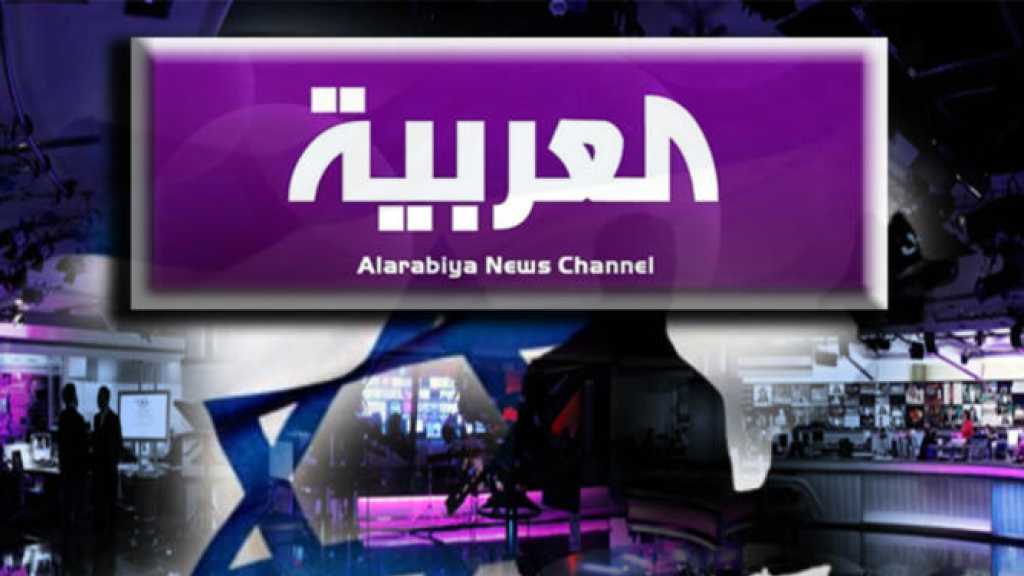Secrets and Screens: How Saudi Media Shapes “Israeli” Narratives

By Mohamad Hammoud
The relationship between Saudi and "Israeli" media, as highlighted in the Haaretz article "Want to Really Know What's Going on in "Israel"? Watch Saudi TV," provides a fascinating insight into the evolving dynamics of Middle Eastern geopolitics. Despite the absence of formal diplomatic relations between the two sides, there exists a strategic collaboration in the media sphere, particularly through Saudi outlets such as Al Arabiya and Al Hadath. This partnership not only facilitates the dissemination of sensitive information but also reveals a deeper layer of geopolitical maneuvering in the region.
Saudi Media as a Conduit for "Israeli" Reports
One of the most notable aspects of the Saudi-"Israeli" media connection is the frequent use of Saudi channels by "Israeli" outlets to leak information. For instance, following the assassination of Sayeyd Hashem Safieddine, a senior Hezbollah figure, Saudi media were the first to report the event. "Israeli" outlets such as Ynet and Kan 11 subsequently cited these reports, which were only officially confirmed by the "Israeli" military weeks later. This pattern repeated itself in the case of the assassination of Salman Jamhah, Hezbollah's liaison with the Syrian Army. Saudi media, particularly Al Hadath, were again the first to release details, which were then picked up by "Israeli" news.
This reliance on Saudi outlets allows "Israeli" sources to bypass censorship laws while controlling the narrative. As noted by "Israeli" journalists interviewed for the Haaretz article, there is an established practice of "Israeli" sources leaking information to Saudi media, which then gets translated and reported by "Israeli" outlets. This provides a convenient way for "Israeli" officials to test public reactions or manage sensitive topics without directly addressing them in the "Israeli" media.
The Role of Saudi Media in Promoting "Israeli" Narratives
Saudi media outlets, including Al Arabiya and Al Hadath, have also played a pivotal role in promoting "Israeli" perspectives. These channels, funded by the Saudi government, often provide airtime to "Israeli" officials, such as the army spokespersons, to present their narratives to the Arab world. For example, the army’s spokesperson Daniel Hagari was interviewed on Al Arabiya and Al Hadath, where he discussed the situation in Lebanon and Hezbollah’s role in the region. This cooperation aligns with the broader objectives of the 2020 “Abraham Accords”, which facilitated increased dialogue and collaboration between "Israel" and Gulf kingdoms. London-based Saudi-owned outlets such as Elaph have also taken a prominent role in normalizing interviews with "Israeli" officials. Since 2015, senior "Israeli" figures have regularly appeared in Elaph, discussing topics ranging from security in the Sinai Peninsula to potential “peace agreements”. These interviews not only serve as a platform for "Israeli" narratives but also reflect a shifting geopolitical landscape in which "Israel" and Gulf states are finding common ground.
Media as a Tool for Geopolitical Strategy
The collaboration between "Israeli" and Saudi media reflects broader geopolitical shifts in the region. By using Saudi outlets to leak sensitive information, "Israeli" officials can manage narratives while maintaining plausible deniability. For example, in December 2022, Saudi-owned Elaph reported on a potential captives’ deal between "Israel" and Hamas. When the report was picked up by "Israeli" media, senior "Israeli" officials denied the claims. This strategy allows "Israeli" sources to test public reactions to sensitive issues without committing to the narrative.
Additionally, the Saudi-"Israeli" media connection underscores a strategic alignment against common adversaries. Saudi channels, such as Al Arabiya, are perceived far more favorably in "Israel" than Qatari outlets like Al Jazeera, which are often associated with Hamas. This preference highlights the role of media in shaping public perception and advancing shared geopolitical goals.
Historical Precedents of Media Cooperation
The Haaretz article emphasizes that the use of Arab media by "Israeli" sources is not a new phenomenon. Historically, "Israeli" officials have used Arab outlets to bypass censorship and deliver controlled messages. For example, in 2011, the Kuwaiti newspaper Al Jarida became a platform for "Israeli" leaks, including stories that led to significant political consequences, such as the dismissal of Uzi Arad as National Security Advisor. This longstanding practice illustrates how media has been a critical tool in "Israeli"-Arab relations, even in the absence of formal diplomatic.
Ethical Concerns and Media Integrity
While the Saudi-"Israeli" media connection serves strategic purposes, it also raises ethical concerns. Critics argue that the use of Saudi outlets as intermediaries undermines journalistic integrity, as these channels often act as state-controlled propaganda tools rather than independent news sources. Moreover, the selective dissemination of information creates an asymmetry in public knowledge, with narratives tailored to political agendas. This lack of transparency can erode trust in media and complicate efforts to hold governments accountable.
Conclusion
The Haaretz article "Want to Really Know What's Going on in 'Israel'? Watch Saudi TV" sheds light on the complex and strategic relationship between Saudi and "Israeli" media. This dynamic not only reflects the intricacies of Middle Eastern geopolitics but also highlights the crucial role of media in shaping public perception and disseminating information. By leveraging Saudi media as a conduit for sensitive reports and a platform for promoting narratives, "Israel" has effectively bypassed traditional barriers to communication. However, this collaboration also raises important questions about media ethics and transparency. As this relationship continues to evolve, it will undoubtedly influence how news is reported and consumed in both regions, shaping the future of media and diplomacy in the Middle East.
Comments



